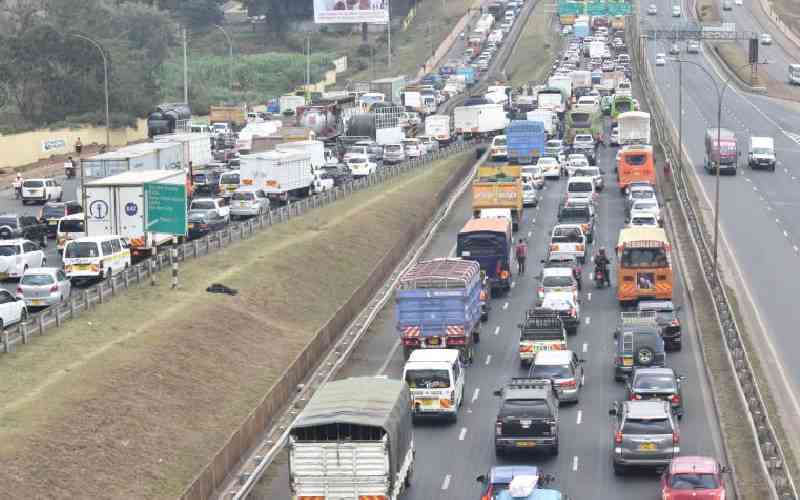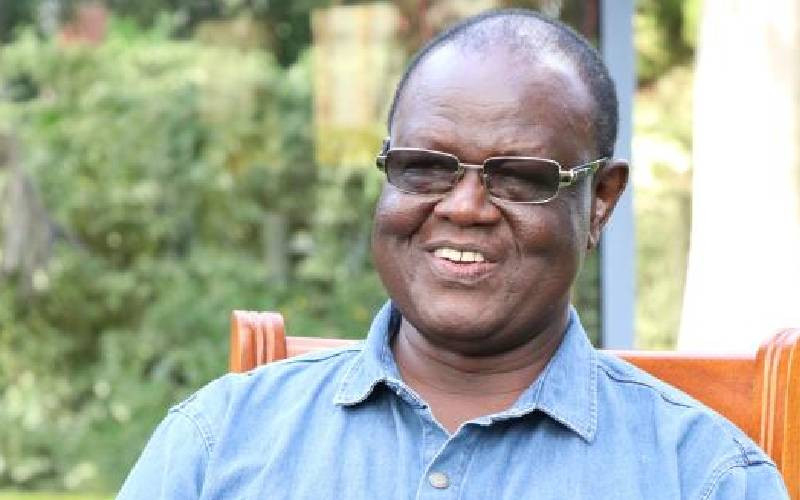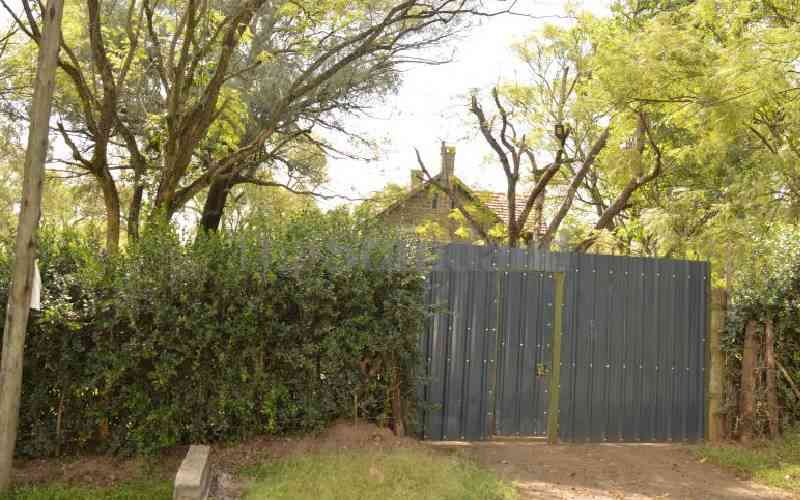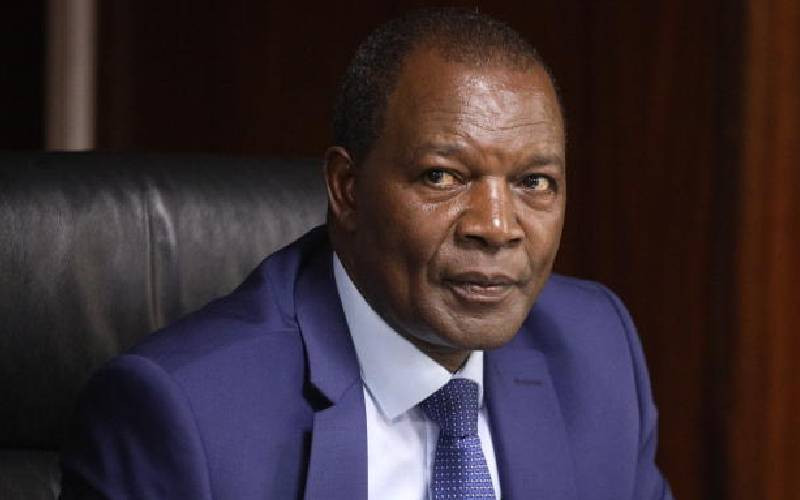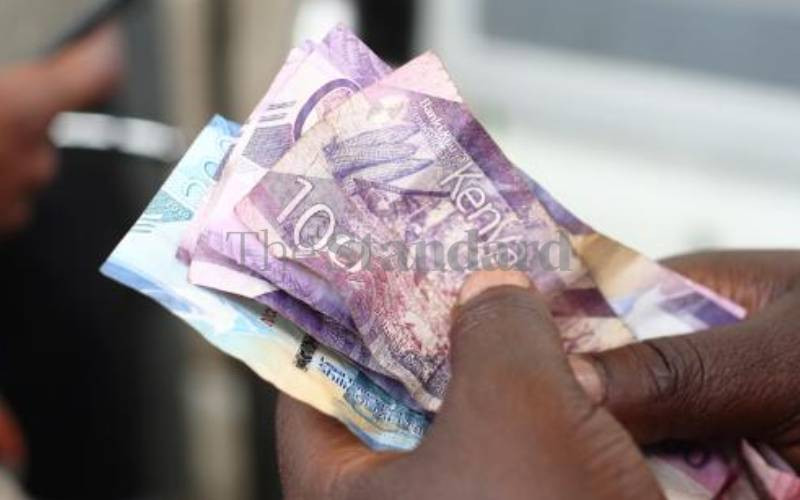
The value of the Kenyan Shilling is hurtling towards a new record low of 170 against the dollar, leading to further financial distress for consumers.
Retail buyers are paying up to Sh167 per dollar in banking halls as the demand for the greenback surges, a Standard spot-check shows.
Currency traders told The Standard yesterday that the shilling appears poised to surpass the 170 threshold despite efforts by the State to prevent its decline. The continued weakening of the shilling now poses a fresh headache for the Kenya Kwanza administration and the banking regulator as its fall is expected to further burden the already struggling consumers.
According to Central Bank of Kenya (CBK) data, the shilling yesterday stood at 160.25 against the dollar for the official banking regulator’s printed mean rate.
But a spot-check yesterday by The Standard discovered that retail dollar buyers are currently paying up to nearly 170 per unit in banking halls due to the increasing demand for the greenback.
Middle East Bank was selling the dollar at Sh167.15 per unit and buying at Sh157.15, while NCBA Bank was selling the US currency at Sh165.2 per unit and buying at Sh159.7, as per its own daily rates update.
Bank of Africa quoted the selling price of the dollar at Sh166 while buying at Sh160.2 while Stanbic Bank sold at Sh164.25 and bought at Sh159.25. I&M Bank said it was selling at Sh165.9 and buying at Sh160.7 while most forex bureaus were selling at above Sh167. A majority of other tier-one banks quoted their dollar price at nearly Sh167.
Despite CBK’s strict penalties on forex market manipulation and a government-supported fuel import agreement, the local currency has continued to decline since the start of the year.
CBK Governor Kamau Thugge said in early December that the banking regulator’s unexpected increase in the key lending rate will help prevent dollar hoarding. At the time the shilling was edging towards the 155 mark against the greenback.
The apex bank raised its benchmark lending rate by a significant 200 basis points to 12.50 per cent from the previous 10.50 per cent.
The scramble for the dollar means that buyers - both for trading and hedging purposes - keep bidding higher for the currency.
Investors are known to hoard dollars for speculation purposes in the wake of forecasts showing that the shilling would remain weak against the US currency.
The CBK benchmark rate hike - the highest in a decade and near levels last witnessed in 2012 during the Kibaki era - was in a bid to stabilise the flagging shilling and rein in the runaway cost of living, CBK said.
Dr Thugge had said at the time the aggressive monetary policy stance had put on notice individuals stockpiling dollars in the hope they would cash in from the shilling fall at a later date.
“The actions that we have taken to raise the CBR (Central Bank Rate) by 200 basis points, that should reduce pressure on the exchange rate,” he said during a post-Monetary Policy Committee meeting press conference in Nairobi in early December.
He also reckoned the surprise move aimed at stabilising the exchange rate would dissuade those hoarding dollars and bring more greenbacks into the banking system.
“I know there are a lot of people who have been holding dollars in the banks or even dollars as an investment asset expecting the shilling to go up.
“We are determined to make sure we are going to tighten the monetary policy until the exchange rate is stabilised and finds its true level which in my view the current rate has overshot that true value,” Thugge said.
“We do believe that once those holding dollars know that we are serious and determined to stabilise the exchange rate, we should see a flow of foreign exchange back into the interbank foreign exchange market.”
The depreciation of the shilling poses a significant challenge to Kenya due to its reliance on imports.
Consequently, any further devaluation of the domestic currency is anticipated to exacerbate the cost of living, inflicting additional hardship on households already burdened by soaring fuel and food expenses.
This, in turn, will contribute to the country’s mounting electricity expenses and the distress associated with servicing its debts.
Buyers, for both trading and hedging purposes, will continue to bid higher for the dollar due to the ongoing scramble for the currency.
 The Standard Group Plc is a multi-media organization with investments in media
platforms spanning newspaper print operations, television, radio broadcasting,
digital and online services. The Standard Group is recognized as a leading
multi-media house in Kenya with a key influence in matters of national and
international interest.
The Standard Group Plc is a multi-media organization with investments in media
platforms spanning newspaper print operations, television, radio broadcasting,
digital and online services. The Standard Group is recognized as a leading
multi-media house in Kenya with a key influence in matters of national and
international interest.
 The Standard Group Plc is a multi-media organization with investments in media
platforms spanning newspaper print operations, television, radio broadcasting,
digital and online services. The Standard Group is recognized as a leading
multi-media house in Kenya with a key influence in matters of national and
international interest.
The Standard Group Plc is a multi-media organization with investments in media
platforms spanning newspaper print operations, television, radio broadcasting,
digital and online services. The Standard Group is recognized as a leading
multi-media house in Kenya with a key influence in matters of national and
international interest.

